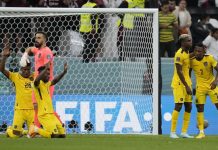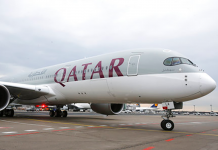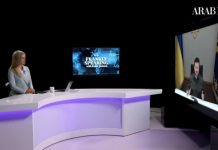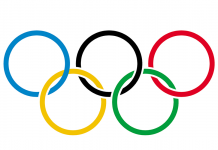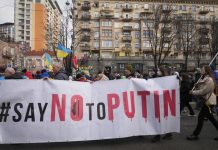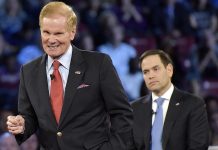He has dominated Russian politics since becoming president on New Year’s Eve 1999 when Boris Yeltsin resigned. Even when he stepped away from the Kremlin to become prime minister in 2008-2012 because of term limits, he remained effectively Russia’s leader.
Nationwide protests on March 26 appeared to rattle the Kremlin because of the demonstrations’ unusual size and reach. The predominance of young people in those protests challenges the belief that the generation that grew up under Putin’s heavy hand had become apolitical or disheartened.
Saturday’s demonstrations were much smaller, but indicated that marginalized opposition forces will continue to push.
The demonstrations were called for by Open Russia, an organization started by Kremlin foe Mikhail Khodorkovsky.
As an oil tycoon, Khodorkovsky was once listed as Russia’s richest man, but his political ambitions put him at odds with the Kremlin. He was arrested in 2003 and served 10 years in prison on tax-evasion and fraud convictions that supporters say were political persecution. He was pardoned in 2013, left the country and revived Open Russia as a British-based organization.
On Wednesday, Russia’s Prosecutor-General banned Open Russia as an undesirable foreign organization. But the group’s Moscow branch says it is administratively separate and not subject to the ban.
Video from BBC News



